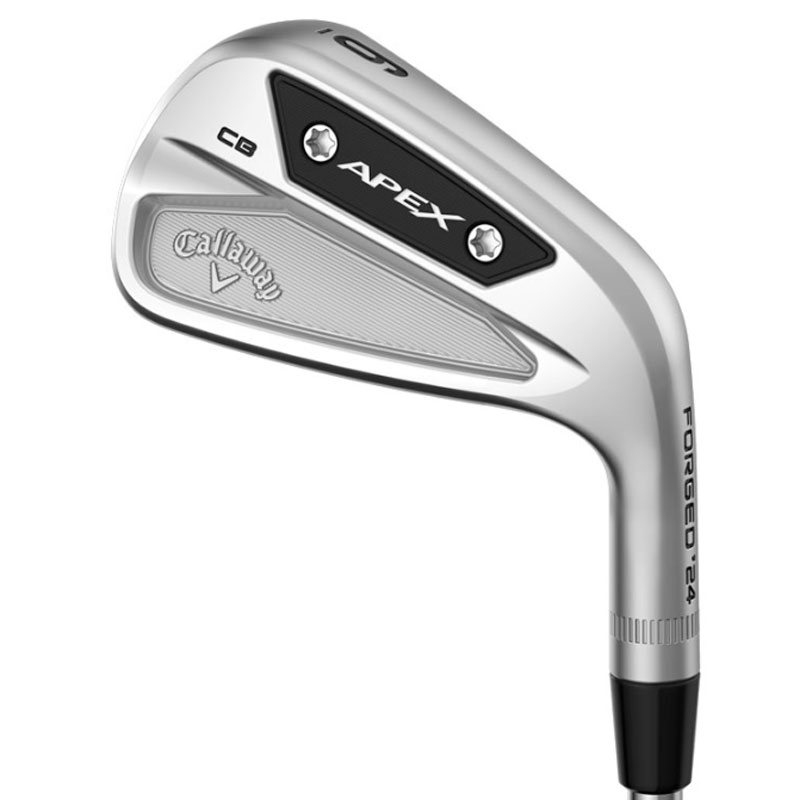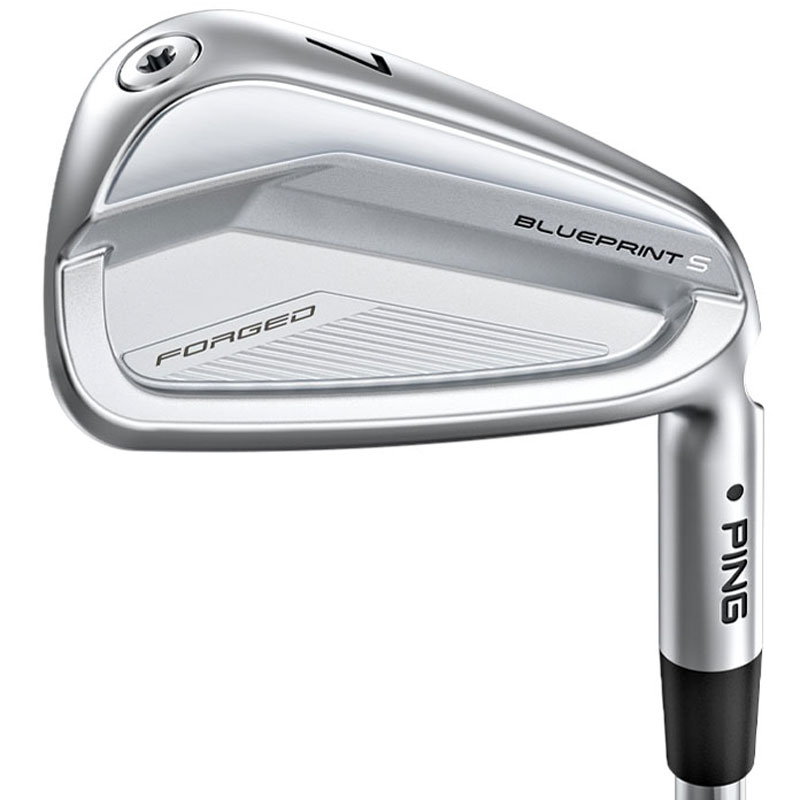Best Irons For Low Handicappers 2025
We take a look at the best irons that offer precision, control, feel and feedback for single-figure golfers
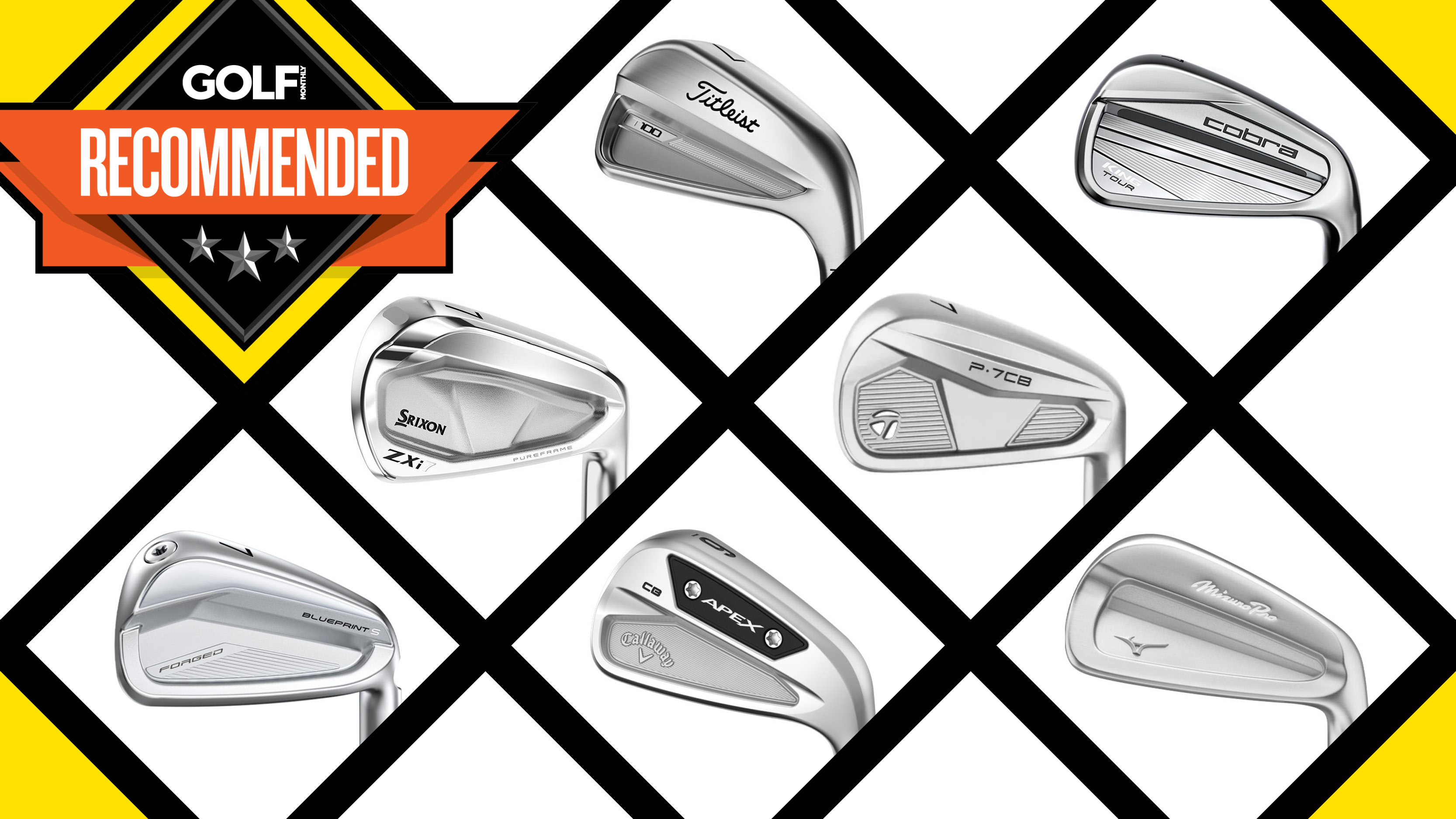

Joel Tadman
Golfers of different ability levels have specific requirements. Low handicappers, essentially anyone with a single-figure index, tend to prioritize extra distance control and tighten dispersion in order to reduce the proximity to the hole and take the pressure off the putter.
For the golfing purist, there’s nothing like a shiny set of elegant new blades. Not only do they look fantastic, but the best golf blade irons deliver the ultimate in feel and workability, which can help you navigate a golf course much more efficiently. However, most low-handicap golfers require something that's going to offer a little more forgiveness, which is where this guide comes in.
The irons we've chosen provide a blend of control and consistency with a little added distance thrown in. So, what are the best golf irons for low handicappers on the market right now? Scroll down to find your perfect match and, if you're after a little more distance and forgiveness but in a relatively compact head, do check out our guide on the best compact mid-handicap irons too.
The Quick List
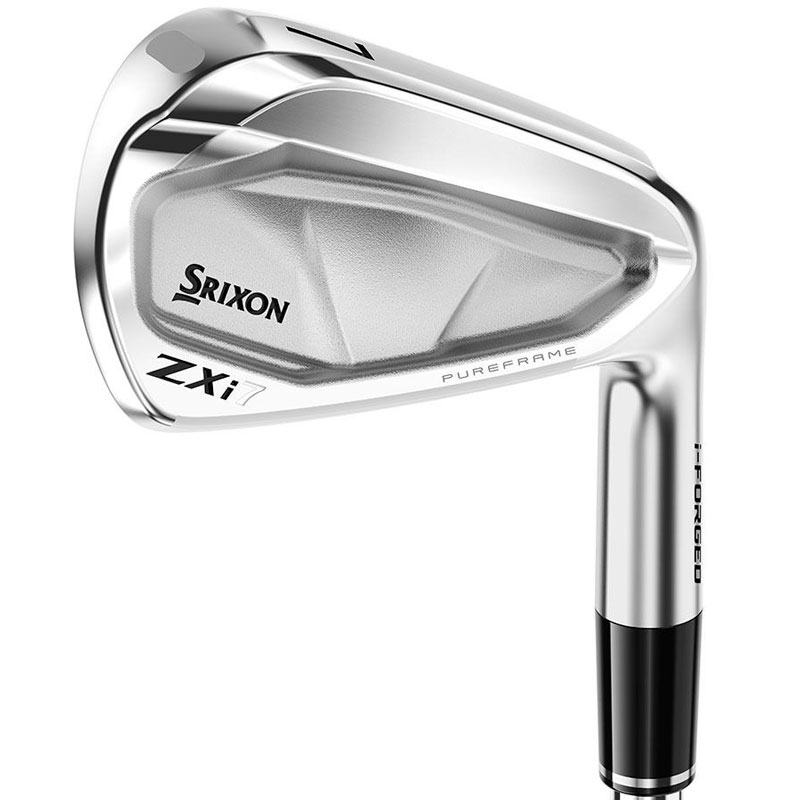
Srixon has taken an already exceptional iron in the ZX7 MKII and made genuine, tangible improvements. The most notable of which is the feel, which is nothing short of exquisite
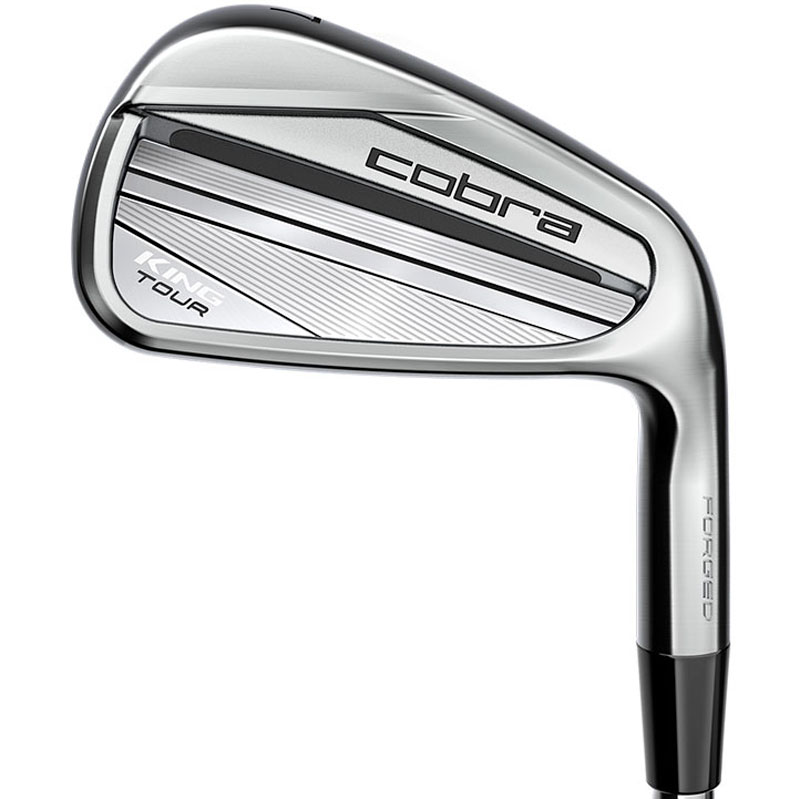
For the low handicapper, this is one of the best all-round packages we’ve tested, with the forgiveness and consistency on offer in such a compact, elegant package, simply superb.
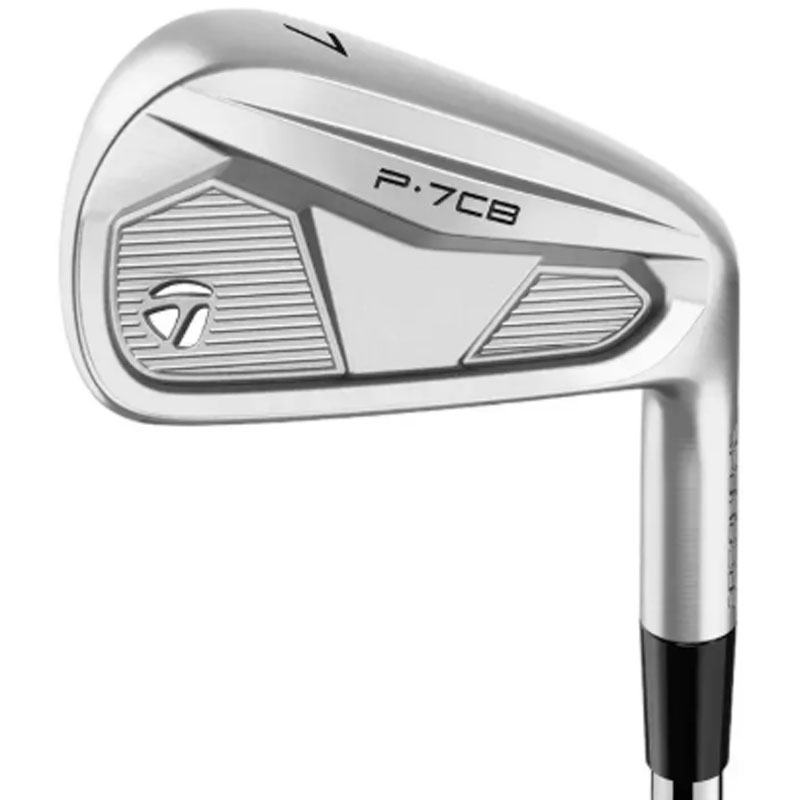
For highly-competent ball strikers looking for a more user-friendly alternative to a blade, the P7CB is certainly an iron to consider. It has jaw-dropping looks and a buttery soft feel.
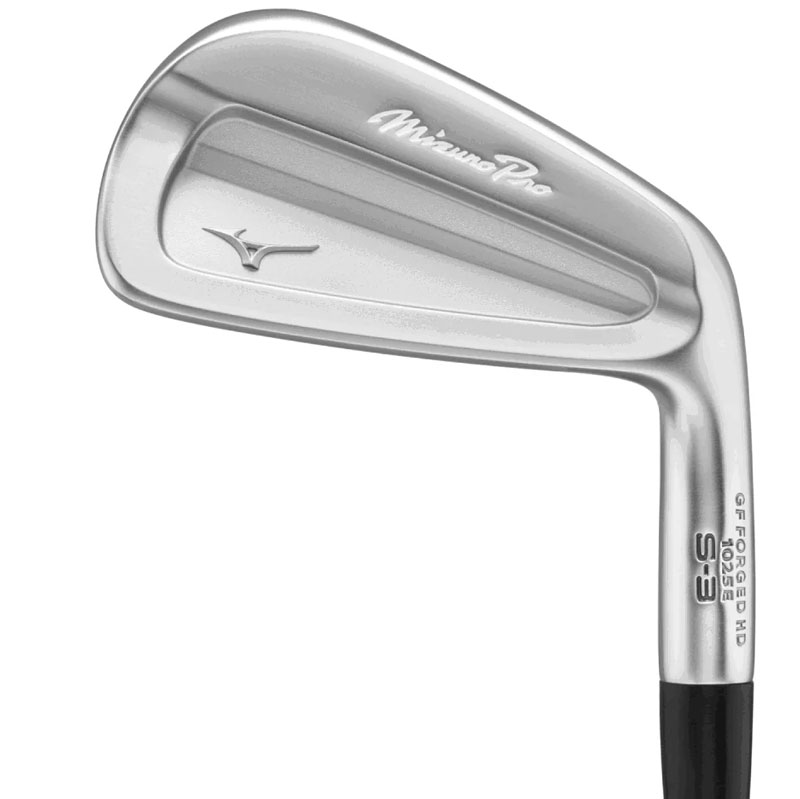
An exceptionally iron that will appeal to low-handicaps. A compact profile, shorter blade length and straighter lines than normally found on Mizuno irons offer a refreshing look, and the feel is simply outstanding.
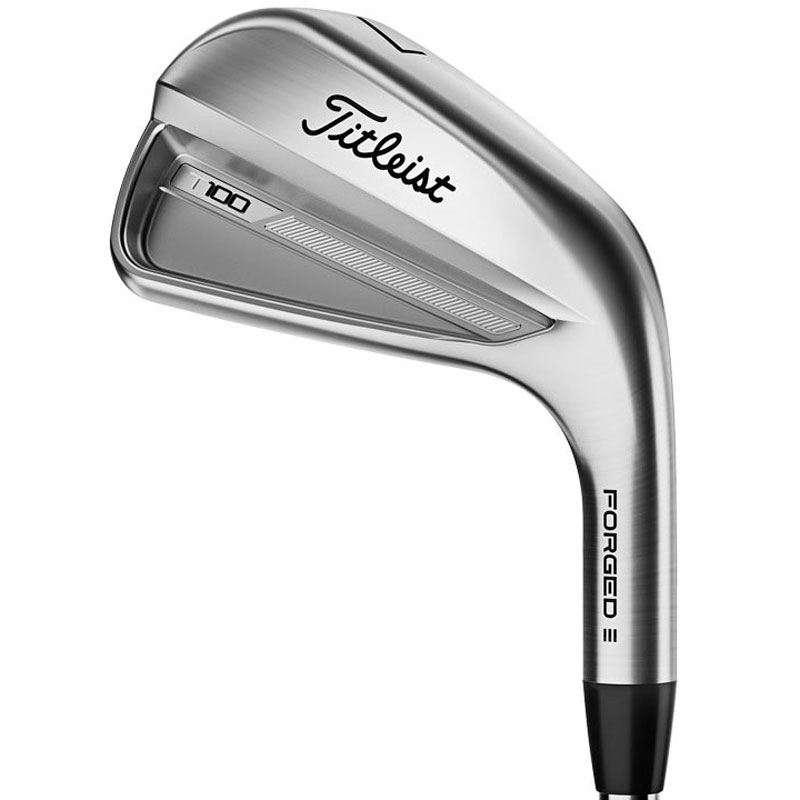
A popular model out on Tour, the T100's produce a penetrating ball flight, along with a solid feel. Advancements over the previous model may be small, but the performance is excellent.
Load the next 3 models
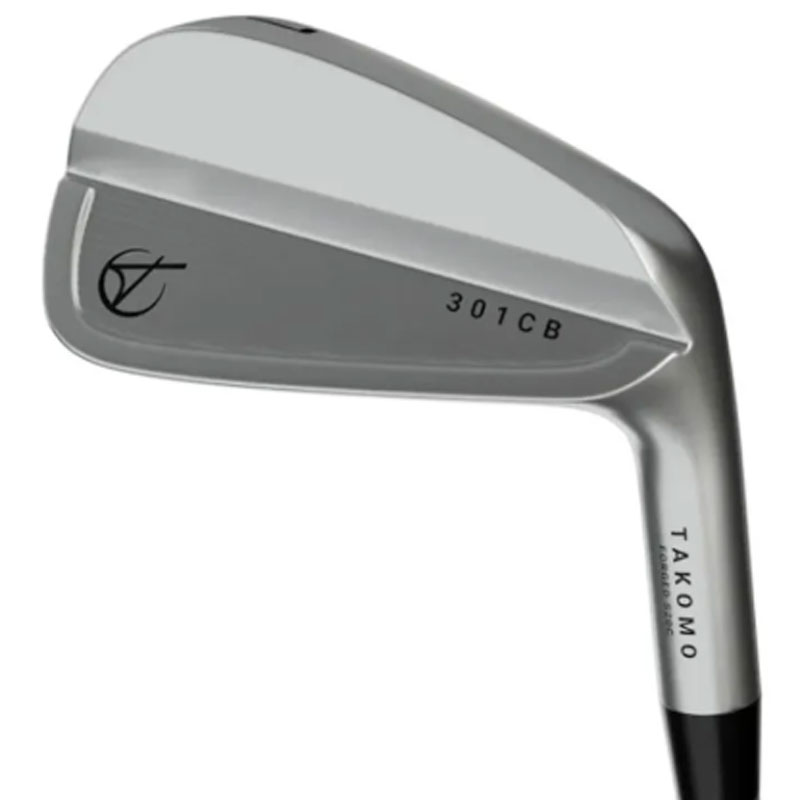
The Takomo 301 CB is an exceptional pure forged iron offering. The incredibly clean, minimalist looks coupled with the buttery soft feel make them some of the best irons of their type that we have tested.
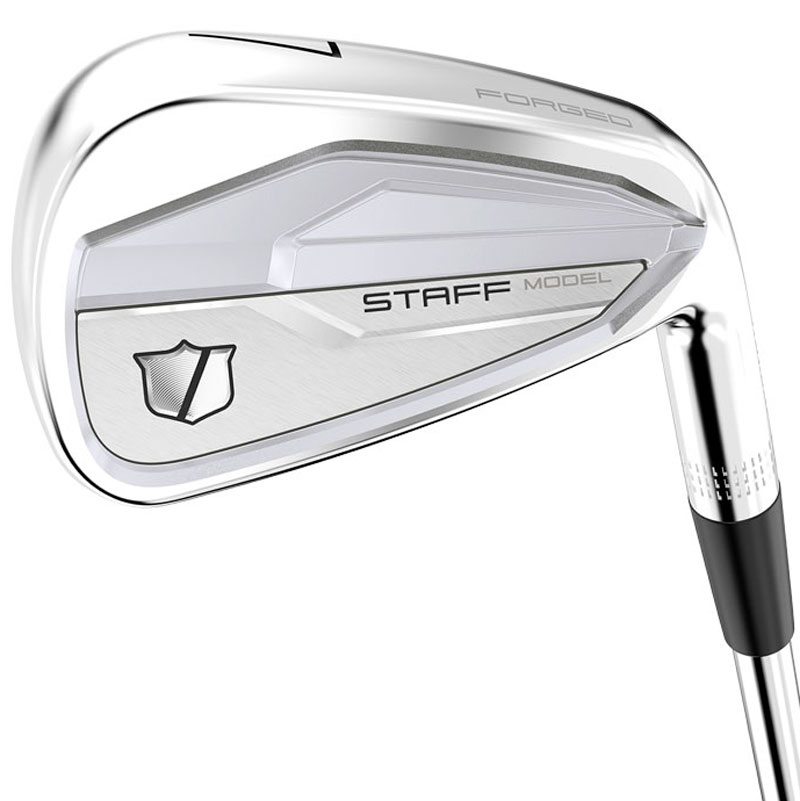
The Staff Model CB irons from Wilson off no bold claims but are simply a well put together, great feeling set of forged irons that combine solid distance with a hint of forgiveness.
Best Irons For Low Handicappers
Srixon ZXi7 Irons
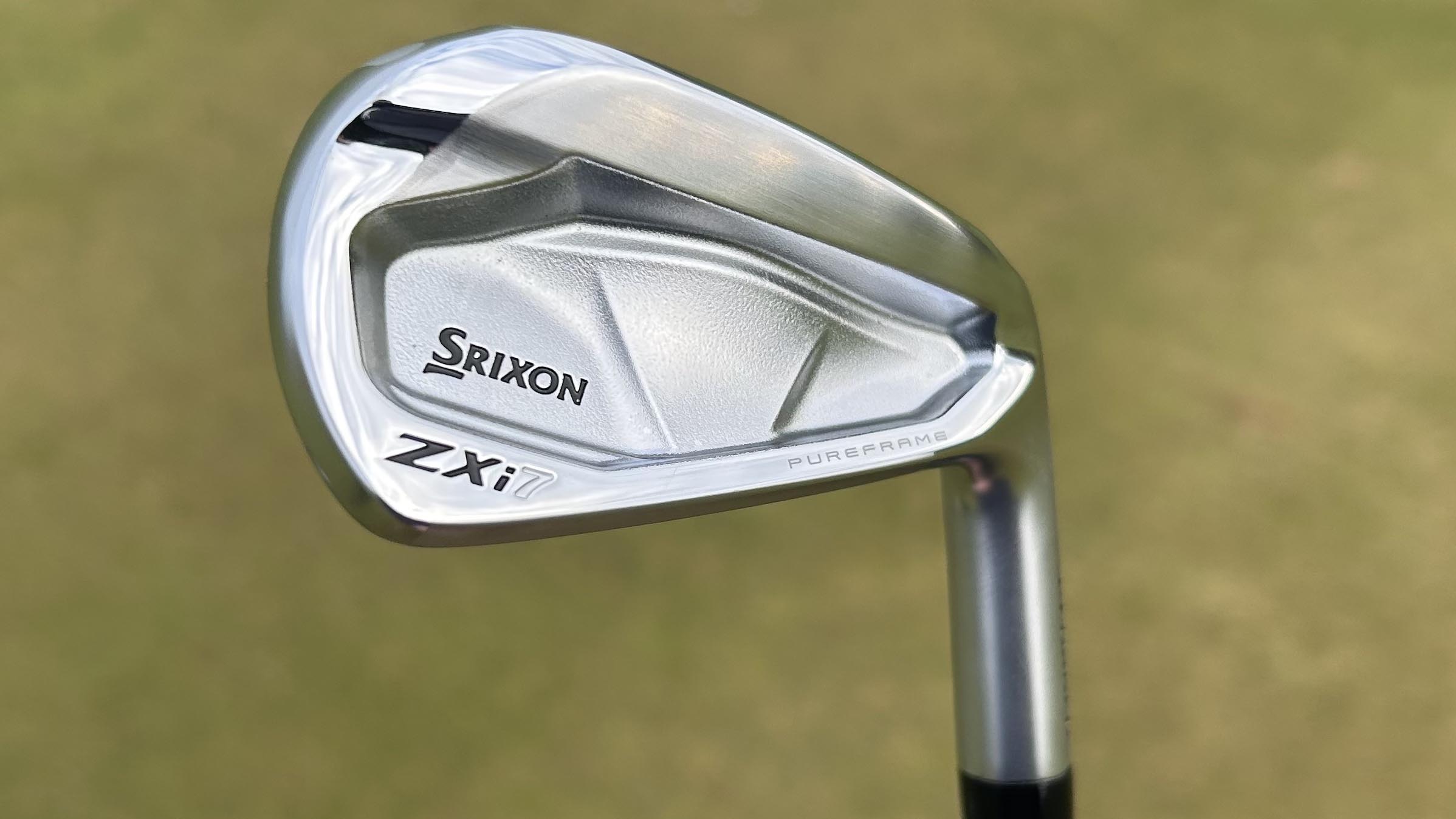
Specifications
Reasons to buy
Reasons to avoid
I enjoyed the ZX7 Mk II so had high hopes for the newer ZXi7 and i am pleased to say I was not disappointed. The main technology story revolves around improving the feel and the process was called ‘i-FORGED’ which is about selecting the right steel depending on the iron. As such the ZXi7 features a very soft type of steel, and as a result, when I managed to test this iron it became clear that Srixon has achieved its brief here.
I thought the strike was buttery soft, giving good feedback as well, whilst the anti-vibration technology is excellent. Additionally Srixon has also kept the things that worked in previous irons of this type as well, chiefly the Tour V.T. sole which creates sublime turf interaction.
I should also mention the look of this iron. Some may say it has a complicated topography but I disagree. The branding is minimal and I think it has a very sophisticated aesthetic. Down behind the ball, however, is where they really begin to excel. Everything about these irons in the playing position suits my eye, and I feel Srixon has ticked every box.
- Read our full Srixon ZXi7 Irons Review
Cobra King Tour Iron
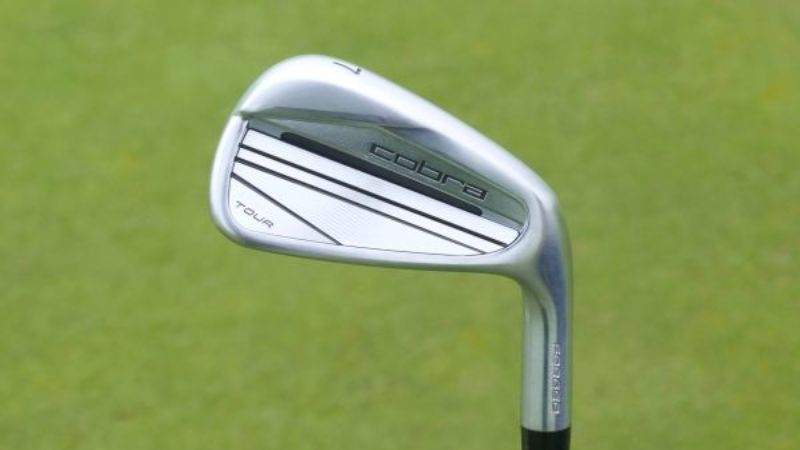
Specifications
Reasons to buy
Reasons to avoid
To begin with, I believe that the Cobra King Tour irons may just be one of the best all-round packages for low handicap players on the market. Cobra claim that the club is aimed at seven-handicappers right down to tour players and, from my testing, that is certainly the case.
Aesthetically, Cobra have provided an extremely clean look that I thought was very understated. Like other models on this list, it has a classic profile and clean lines, with the Tour iron providing a shorter blade length than its predecessor, as well as a dense yet soft feel at impact.
In testing, I found there to be a healthy amount of spin which meant we could control the trajectory and stopping power when hitting into greens. What I loved most was the forgiveness on offer, especially from such a compact head. The reduced margin for error, combined with the club's consistency and shelf appeal, makes this elegant package a must-consider if you're an experienced player looking for a high-quality set of irons.
- Read our full Cobra King Tour Iron Review
TaylorMade P7CB 2024 Iron
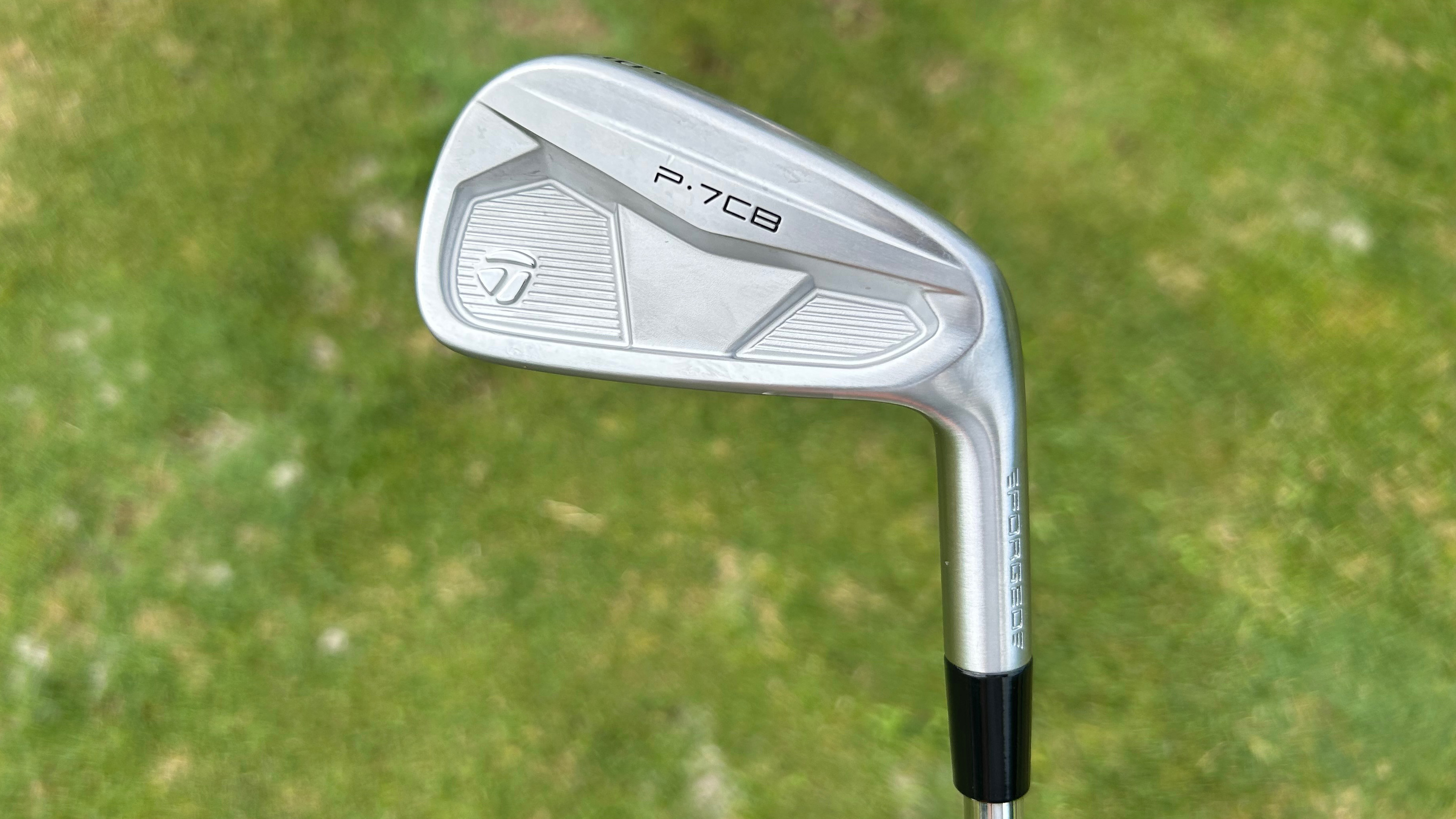
Specifications
Reasons to buy
Reasons to avoid
Looking to sit among the best golf irons, TaylorMade brings the P7CB, to a market already filled with great irons for low handicappers. Before they got released I saw them in the bags of a number of professionals and I learned why after I tested them.
There isn't anything ground breaking with the technology in these irons, but there is one notable feature added to help with both forgiveness and feel. Most of the head has been forged with an intense pressure that is more than the 'industry standard' to improve the feel and consistency of the forging - it is then then milled out through the sole to create two pockets. These pockets then have been filled with different materials and I must say the sensation at strike is top-notch. Soft, but not too soft, and robust without feeling harsh, there is an almost unique depth to strike here that is a genuine pleasure.
Additionally, I think these might be the best looking irons on the market. The sophisticated brushed satin finish adds a real touch of class, and the look at the playing position only adds to the allure of these irons.
- Read our full TaylorMade P7CB Iron Review
Mizuno Pro S3 Iron
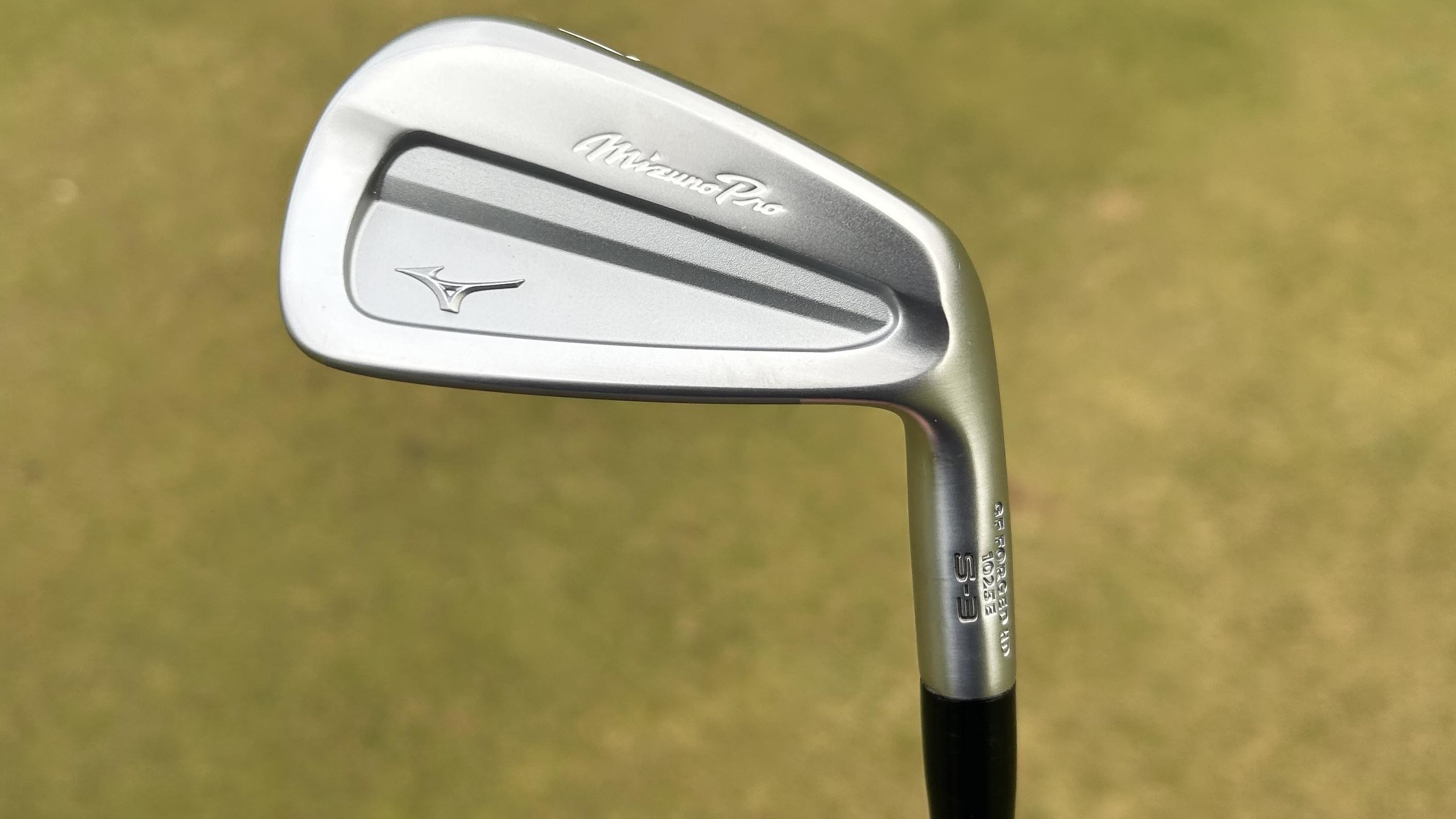
Specifications
Reasons to buy
Reasons to avoid
One of the best Mizuno irons currently on the market takes the form of the Pro S3. Built purely for feel and control, Mizuno has used 1025E Pure Select Mild Carbon Steel along with a copper underlay to provide the very distinctive Mizuno feel, which is really stunning I must say. There is a softness at impact when felt sublime and also flawless turf interaction thanks to the newly engineered triple cut sole. Admittedly there is not much in the name of forgiveness with this iron, you certainly know when you have mishit a shot, but the pure joy of even one flushed strike makes up for it.
As is often the way with more squat iron head shapes, the shorter blade length seems to make it easier to manipulate the clubface and produce a variety of shapes and trajectories at will, which many low handicappers will really love.
These players will also love the look of these irons as well. They are simply sensational to look at, on the shelf, in the bag, down at address, they are about as clean as it gets. I love the satin finish too because it looks extremely premium.
- Read our full Mizuno Pro S3 Iron Review
Titleist 2023 T100 Iron
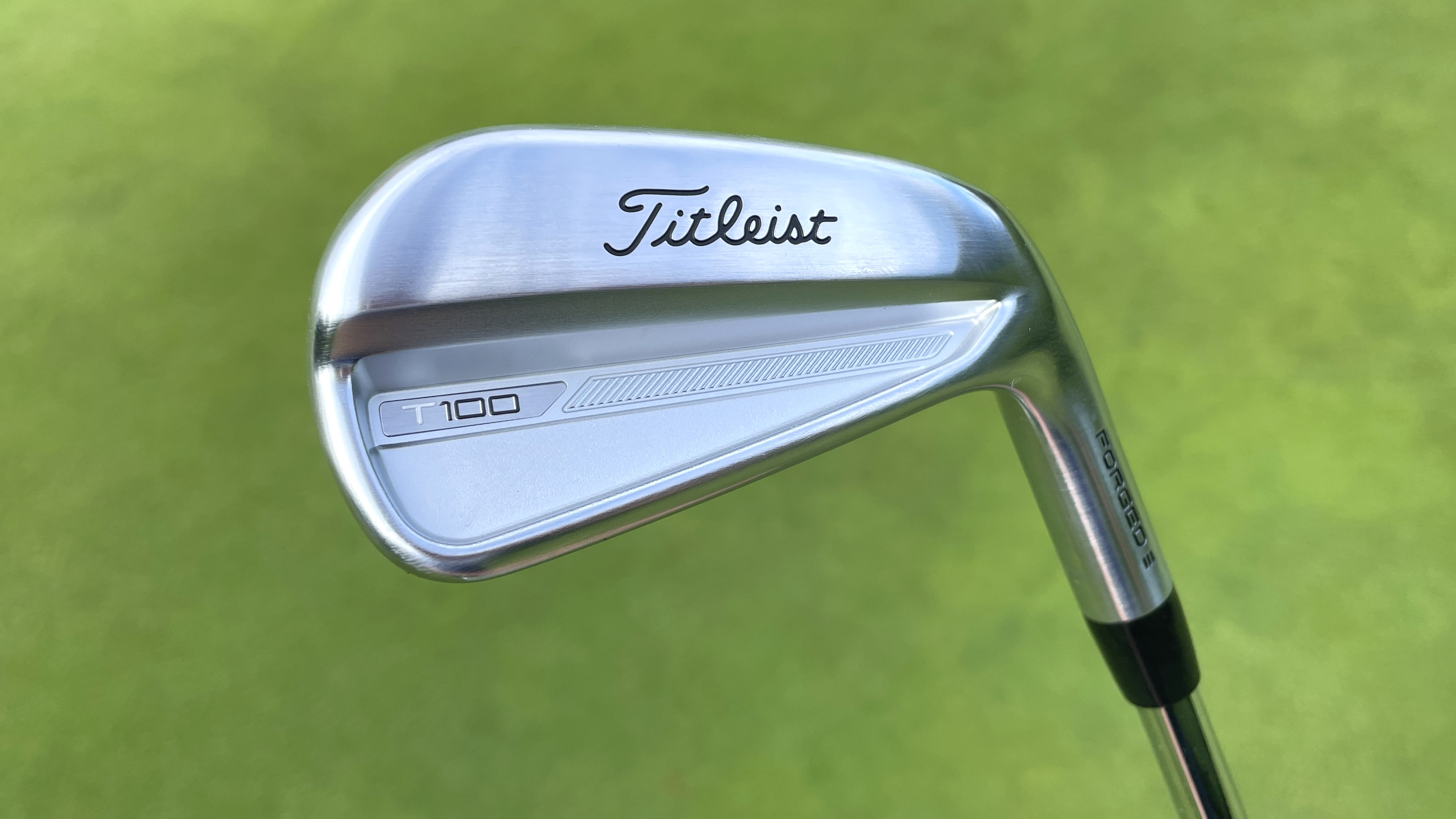
Specifications
Reasons to buy
Reasons to avoid
The T100 is one of the most recognized irons when it comes to the low handicap category, with their new version offering up some notable improvements over its predecessor. In testing, I noticed the improvements around the consistency and how the club entered and exited the turf, with the narrow sole shape helping create a satisfyingly crisp feel and well-formed divots that are easy to replace.
Where this model stands out, though, amongst the low handicap irons is the split tungsten weighting inside a dual cavity. This has has been refined in the new model to be more precise and, consequently, the T100 provided a soft yet solid feel with an element of forgiveness. I felt that it’s arguably one of the more stable tour played irons out there and, while it’s not built to be especially user friendly, there is some help at hand.
At address, it was clear to see that this iron is built for the competent ball striker. The thin sole and top line is joined by a narrow blade length and barely a hint of offset. Along with the looks, the T100 is an iron built for golfers with power in the locker. The flight is more penetrating than the T150 iron - in my testing it flew around two yards lower and generated around 600 rpm more spin. Finally, the yardages of the T100 landed within a smaller range, which is crucial when trying to hit a very specific number.
- Read our full Titleist 2023 T100 Iron Review
Callaway Apex CB Iron
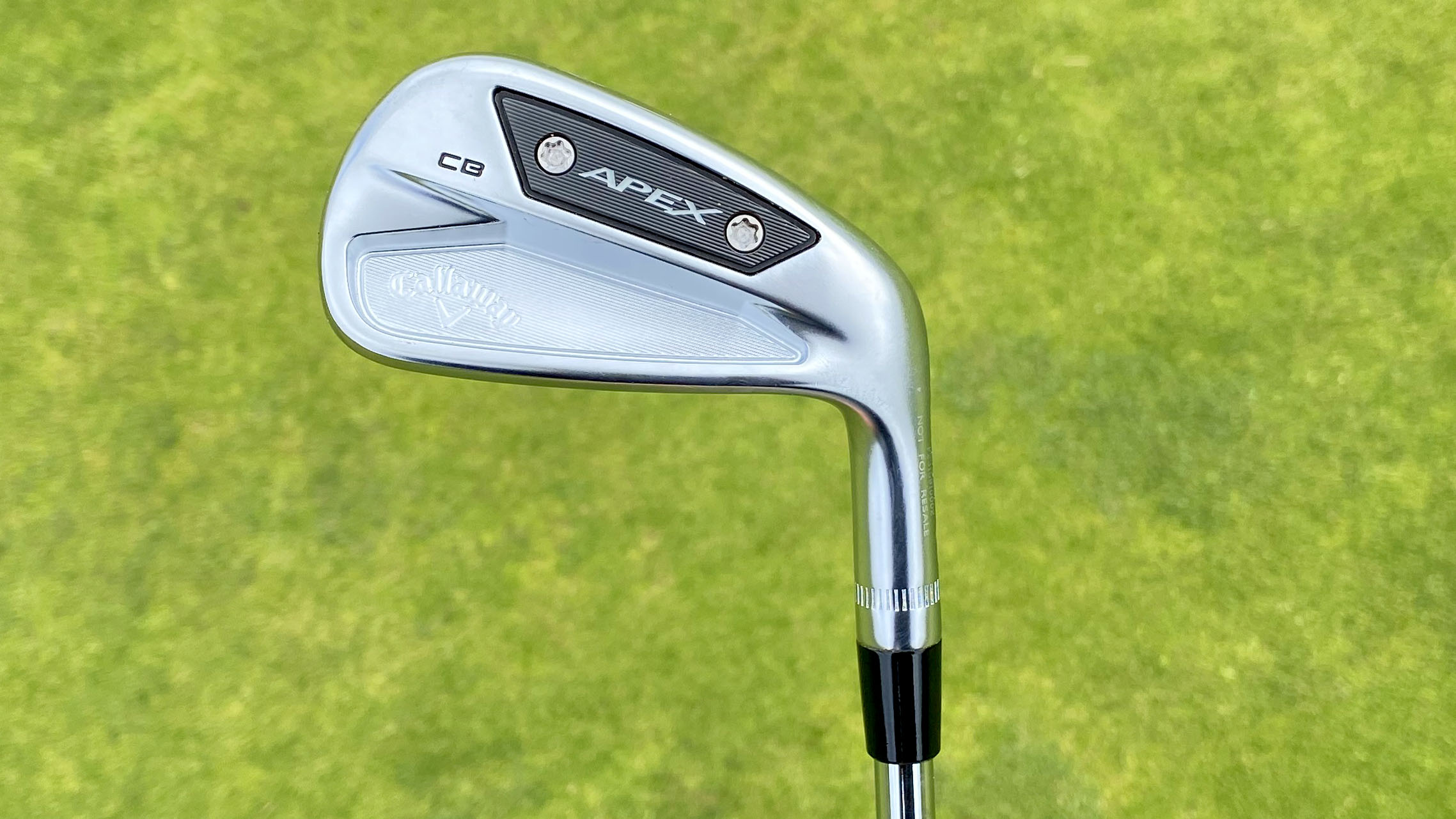
Specifications
Reasons to buy
Reasons to avoid
Callaway's Apex CB iron has a forged construction designed to give elite ball-strikers pure feel, precise shot-making and workability. In testing, they certainly didn't disappoint, with an array of new technology providing elite performance.
Overall, they were hard to fault, with a blend of forgiveness and feel combining to create high levels of control and workability. The main standout, though, was the distance and ball flight. In testing, I thought that the performance on offer would even help players that have moderate swing speeds, especially as the forged 1025 mild carbon steel construction delivers an incredibly soft and responsive feel at impact.
One last shoutout goes to the aesthetics of the Apex CB. I felt these irons looked fantastic, as the sleek and stylish design struck a great balance between a classic look while also leaving little clues and nods to modern innovation. They are slightly different to their predecessor, with the softer, more curved toe and smoother transition from hosel to top-line really appealing to our eye.
- Read our full Callaway Apex CB Iron Review
Takomo 301 CB Iron
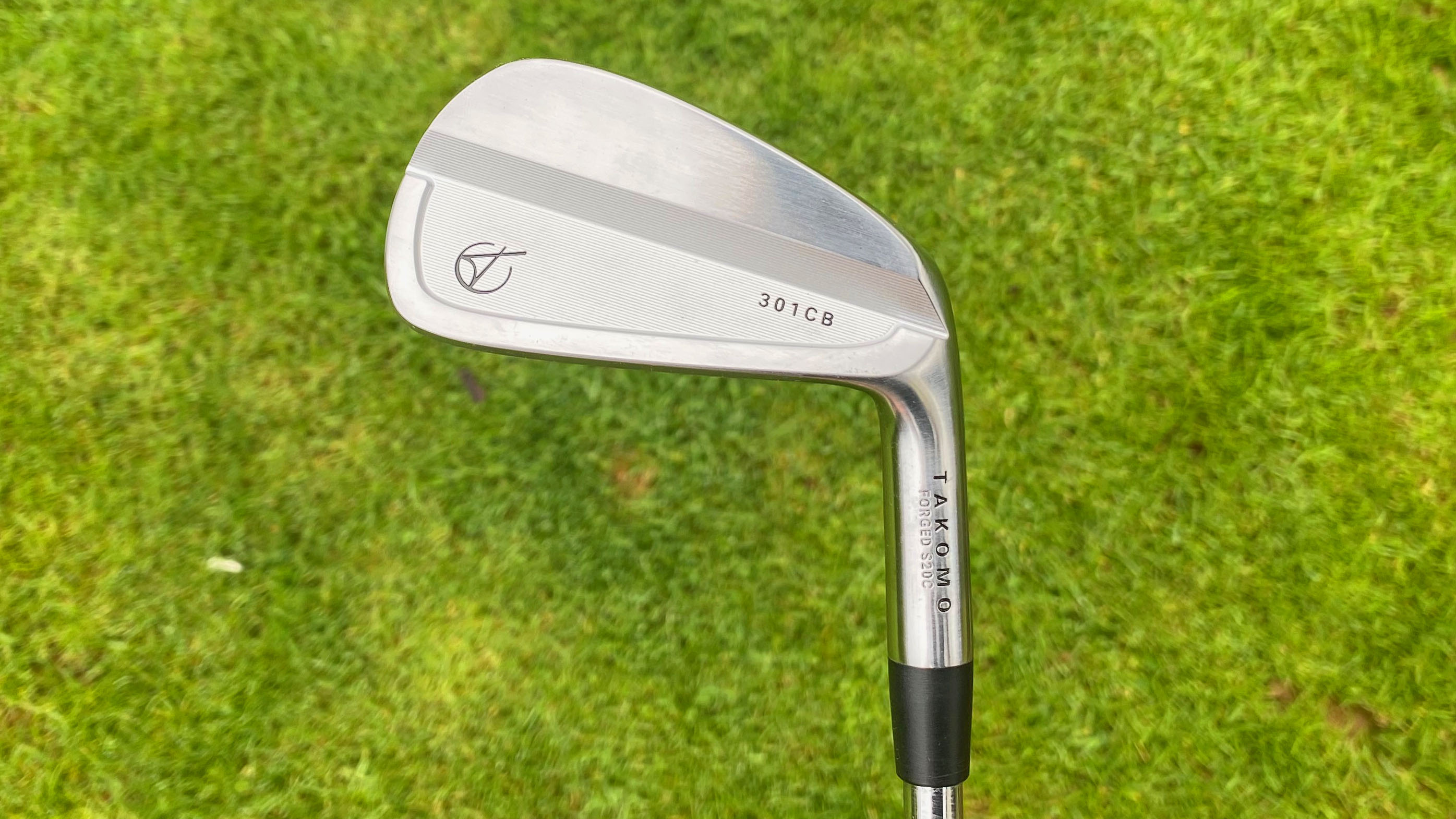
Specifications
Reasons to buy
Reasons to avoid
To give some backstory, Takomo are a direct-to-consumer equipment manufacturer based in Finland. Their equipment is extremely well-priced and, as you will agree, the looks are exquisite. It is very minimalist and, although you are unlikely to ever see these on the shelf of your local pro shop, the sophisticated looks really pinpoint the quality craftsmanship on offer.
They look stunning but it's worth noting that, behind the ball, they aren't the most confidence-inspiring irons, with quite a short blade length providing a compact shape. What's more, the top line is far from thick and the sole far from wide but, if you like that look then these will certainly appeal.
So, how did they perform? Well, the feel was excellent and exceptionally soft. I think that it will even rival some of the best blade irons on the market when struck out of the sweet-spot. Obviously, mis-hits were apparent when I didn't connect with it but, when I did, it easily rivaled the other more well-known manufacturers in this department.
- Read our full Takomo 301 CB Iron Review
Wilson 2024 Staff Model CB Iron
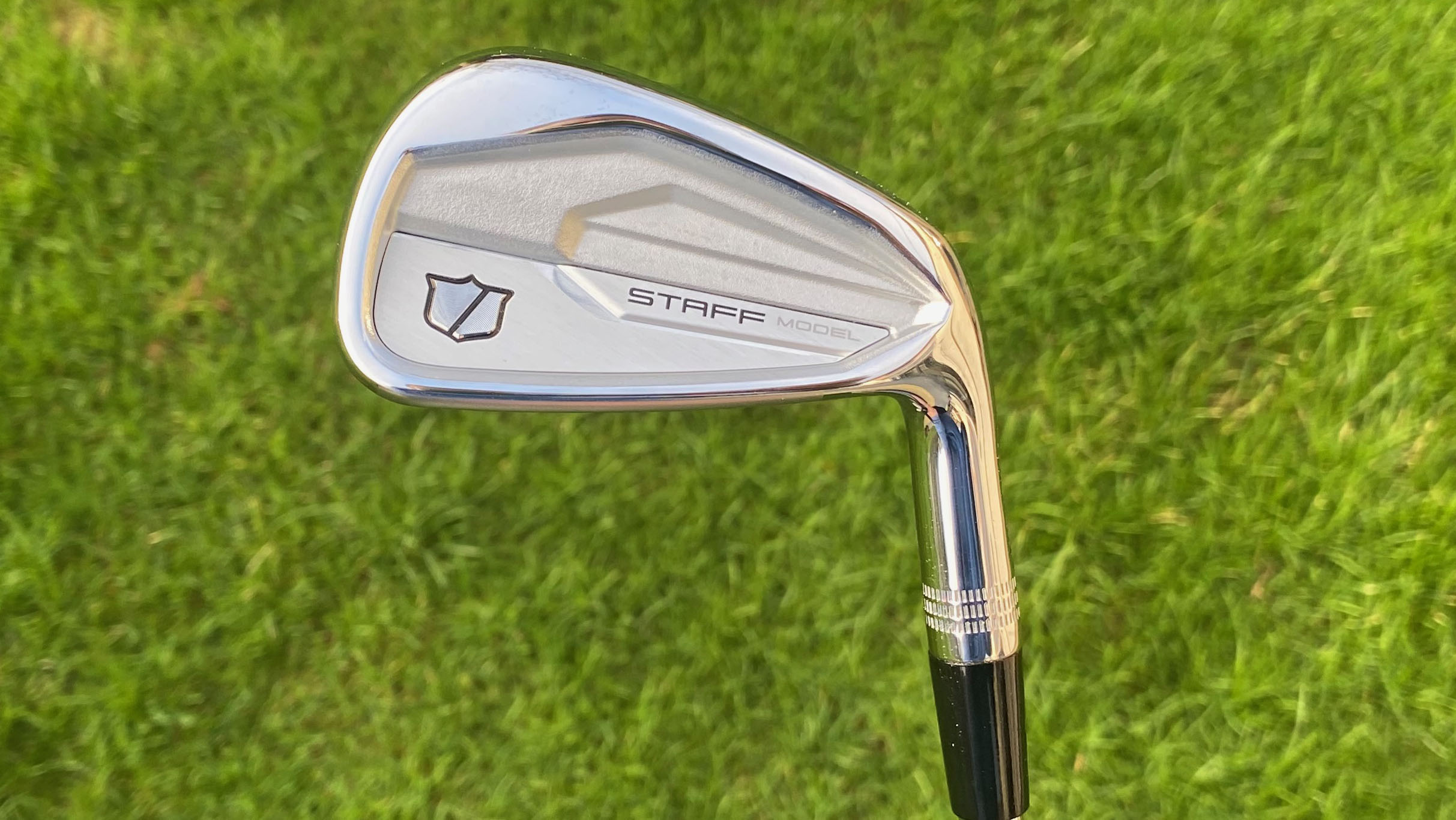
Specifications
Reasons to buy
Reasons to avoid
To begin with, I was a big fan of the looks of the Wilson Staff Model CB, with the company producing a set of beautifully crafted, simple, forged cavity back irons. Down at address, there is a chrome finish, which may divide opinion, but the generous cavity and well-shaped head will inspire confidence to various levels of golfers.
Importantly, during testing, the numbers I produced were consistent and, although Wilson is perhaps less known in the iron department than others, the performance rivaled the other clubs in this list. It's worth noting that the extra perimeter weighting does offer some forgiveness, with the toe weighting impressing us as it helped eliminate a left miss.
Overall, there aren't many frills in this model, but what you do get is a really nicely put together set of unassuming cavity back irons that are slightly cheaper than others on the market.
- Read our full Wilson 2024 Staff Model CB Iron Review
Ping Blueprint S Iron
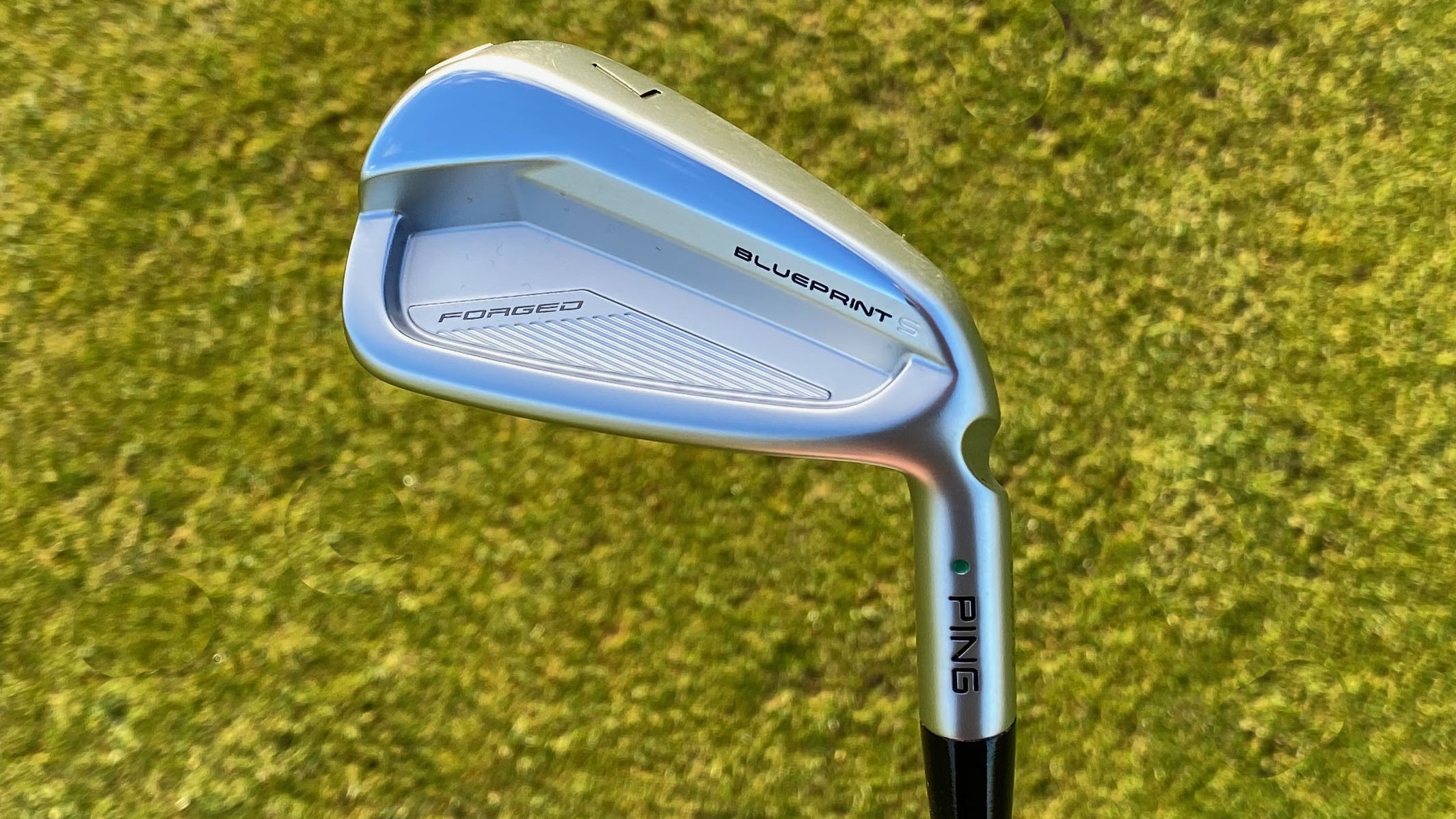
Specifications
Reasons to buy
Reasons to avoid
The Blueprint S is one of the best Ping irons on the market, with this particular model a compact profile, minimal offset and player's cavity iron that will appeal to the lower handicapper. It's no wonder that many of Ping's staffers have put the Blueprint S into their bags...
I begin with the performance and, through subtle changes like Precision Pocket Forging, which saves 10 grams of weight and relocates it to increase the MOI and alter the center of gravity position, we found we could not fault these irons in the slightest. The trajectory was consistent and comfortable, whilst mis-hits were noticeable, something which we liked as it gave us instant feedback.
Looks-wise, Ping have done a great job when the Blueprint S is behind the ball, with the iron framing it perfectly as the top line is nice and thin and the blade length is compact without being intimidating. The stripe of chrome is the only downside but, when struck, the irons produce a solid, but perhaps, firmer feel.
- Read our full Ping Blueprint S Iron Review
How we test golf irons
Our testing for golf irons is built upon a comprehensive process combined with the knowledge and expertise of the Golf Monthly test team. As far as the specific procedure goes, before testing, the team will usually attend product launches and meet with the manufacturer's R&D experts to understand the new technology.
When starting our testing, we usually go indoors first using a simulator, launch monitor and premium golf balls so we can gauge performance in controlled conditions. Then outdoor testing takes place on practice facilities and then out on the golf course. Doing all of this is incredibly important to see how the irons perform in different conditions and how they are to actually use. Iron testing is specifically managed by Staff Writer Joe Ferguson, a PGA Professional who is the ideal type of player to test the low handicap irons in this guide. He has over two decades in the golf industry as well.
Finally we should acknowledge that no manufacturer can pay for a good review because our testing team makes conclusions on the testing they conduct.
How to choose irons
As you have seen, the market for golf irons is crowded and confusing and being sure you're getting the most suitable iron for your game can be a minefield. Hopefully, this piece has given you an idea of what the best options are out there right now, but here is some more advice to help you in your quest to find the best golf iron for your game in this crowded and dense marketplace.
Your Handicap And Ability
This is arguably the most important first step: understanding and then knowing which type of iron best suits your game. Obviously if you are reading this guide you are probably a low handicap player so that means you probably aren't looking for game improvement models, but instead irons built upon precision, workability, feel and control. But there is still a question to ask yourself - blades or cavity back irons? We have included several models that fit into both of those sections above and the best way of finding out which is best for you would be to get a custom fitting. Additionally you should think about what kind of iron configuration would be best for you, because it might be best to have a blended set of more forgiving irons at the top end of the bag, and transition into blades.
You'll know how good or perhaps not so good your ball striking tends to be, so make sure you invest in a set of irons that matches where your game is out now, not where you'd ideally want it to be.
Price
This will be a major factor in anyone's decision of what irons to go for. As you'll have seen in this list, the price can vary dramatically between irons. This obviously can fluctuate between brands, and we've highlighted in this list the ones we think give the best value for money in this category. The price jumps quite significantly when looking at the forged and bladed options - up to and above $1000 - but this is par for the course and you'll be getting a high quality, premium product in return.
Custom Fit
This is probably the most essential part of the iron buying process, no matter the irons you're after or how good you are at the game. A custom fit session will make sure you get the right flex and length of shaft, correct lie angle and correct iron head for your game, meaning you'll finish with the best golf clubs that are as suitable as possible for you out on course.
Custom fits can be a daunting process but they're a vital part of the club buying process, and they are provided by a number of golf retailers or club professionals at your local golf club.
For more golf iron buying advice, check out our guides on the best golf irons for beginners, best irons for seniors, or best distance irons.
FAQs
What is considered a low handicap in golf?
Any handicap index in single figures in considered to be low given the new range for men goes up to an index of 54.
Can a low handicap play game improvement irons?
Absolutely, especially given the fact that we're seeing game improvement irons become smaller and more refined today. This is because through use of high density tungsten weighting and other means, manufacturers are able to cram in higher levels of forgiveness into a smaller chassis. As long as the lofts remain relatively traditional, using a game improvement iron is certainly doable for a low handicapper, although feel and workability may somewhat be sacrificed.
Get the Golf Monthly Newsletter
Subscribe to the Golf Monthly newsletter to stay up to date with all the latest tour news, equipment news, reviews, head-to-heads and buyer’s guides from our team of experienced experts.

Joe has worked in the golf industry for nearly 20 years in a variety of roles. After a successful amateur career being involved in England squads at every age group, Joe completed his PGA degree qualification in 2014 as one of the top ten graduates in his training year and subsequently went on to become Head PGA Professional at Ryder Cup venue The Celtic Manor Resort. Equipment has always been a huge passion of Joe’s, and during his time at Celtic Manor, he headed up the National Fitting Centres for both Titleist and Taylormade. He’s excited to bring his knowledge of hardware to Golf Monthly in the form of equipment reviews and buying advice.
Joe lives in North Devon and still plays sporadically on the PGA West region circuit. His best round in recent years came earlier in 2023 where he managed a 9 under par 63 at Trevose GC in a Devon & Cornwall PGA Tournament.
Joe's current What's In The Bag?
Driver: Switch between TaylorMade Qi35 and Callaway Elyte TD - both with Fujikura Ventus Black 6-X
Fairway wood 1: TaylorMade BRNR Copper Mini Driver - Fujikura Ventus Black 7-X
Fairway wood 2: Callaway Apex UW 17˚- Fujikura Ventus Black 9-X
Irons: TaylorMade P7CB 3-PW with Dynamic Gold Tour Issue X100 shafts
Wedges: Callaway Opus 50, 54, and 60 degrees - Project X LS 6.0 shafts
Putter: LAB Golf Oz.1 (zero shaft lean)
Ball: TaylorMade 2024 TP5x
Grips: Golf Pride Tour Velvet 60R
Bag: Vessel Player IV Pro DXR Stand
- Joel TadmanDeputy Editor
-
 ‘Tough Times Don’t Last, Tough People Do’ – Max Homa After Making First Cut In 9 Months At Masters
‘Tough Times Don’t Last, Tough People Do’ – Max Homa After Making First Cut In 9 Months At MastersMax Homa is a relieved man after ending a barren run to book his place in the weekend at The Masters
By Mike Hall Published
-
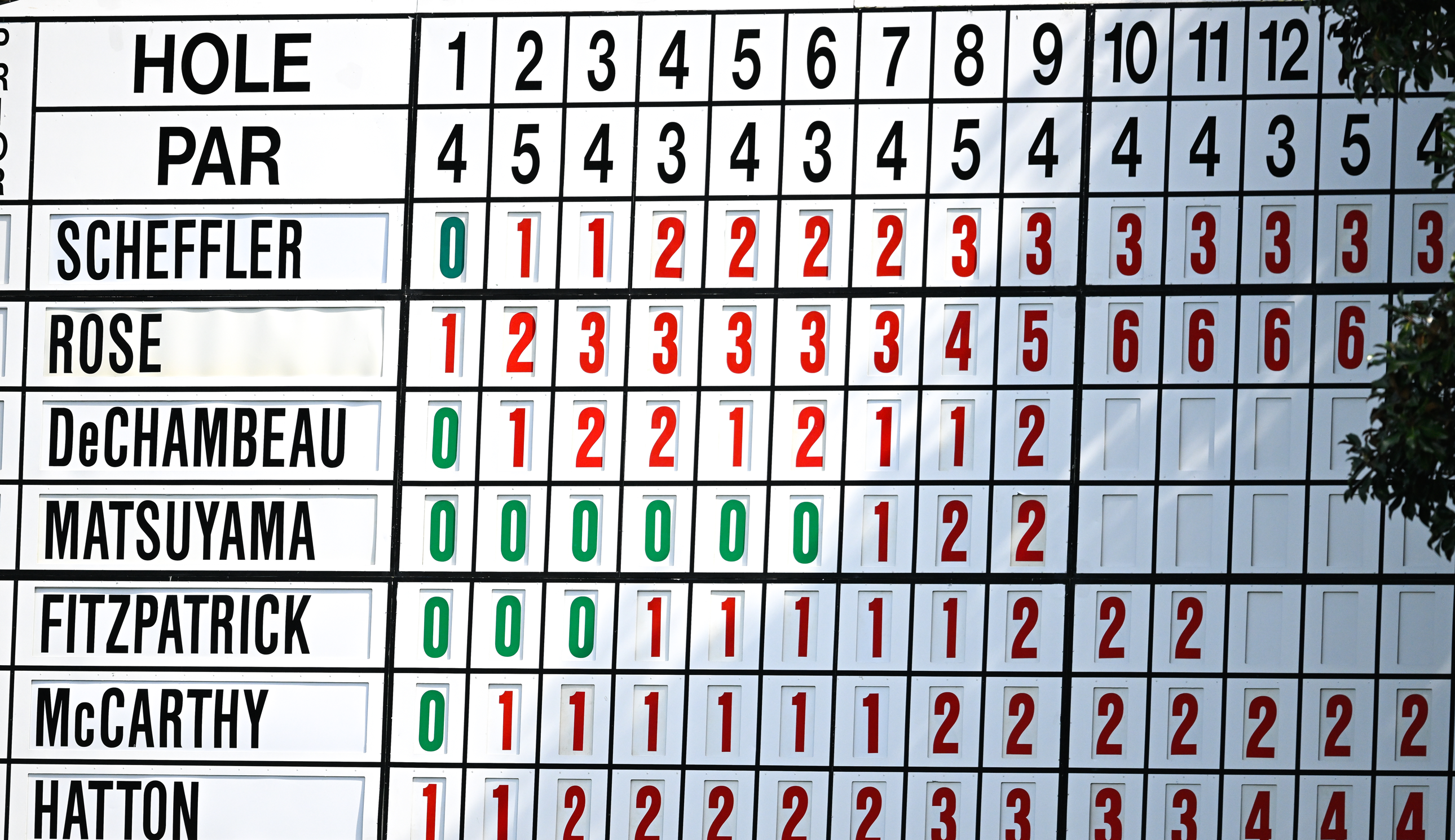 Projected Masters Cut Line: Players Searching For +2 Score At Augusta National
Projected Masters Cut Line: Players Searching For +2 Score At Augusta NationalWith every group out on the golf course, the cutline at the halfway stage of round two sits at two-over, with some big names potentially missing out on the weekend
By Matt Cradock Published
